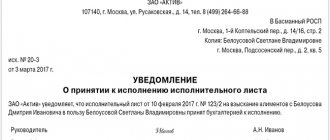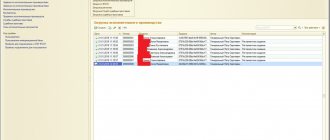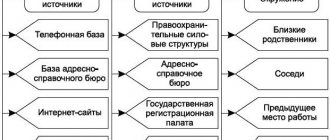Can a bailiff seize alimony payments? More and more people are interested in this question. Cases have become frequent when persons receiving child support become direct debtors for all kinds of civil obligations (loans, credits). The bulk of alimony payments usually goes into accounts at a specific bank. When collecting such debts, the bailiff seizes all funds, including those transferred to children. This raises the question: do bailiffs have the right to seize child support?
Can bailiffs arrest child support: legal aspects of the issue of arrest of alimony
So, you don't know if child support can be garnished.
The process of seizure or application of any compulsory measures in enforcement proceedings by bailiffs is not allowed for certain types of income in accordance with the current law “On Enforcement Proceedings”. Article 103, paragraph 7 of the Federal Law contains information about the list of income that cannot be seized. Child support is also included in this category, which means that bailiffs do not have the right to seize alimony. Accordingly, bailiffs are not authorized to seize alimony, that is, the account where they go. Detailed actions are illegal. Debtors have the right to appeal this issue. It must take place in court or on the basis of a claim to the higher management of the bailiff who imposed the arrest.
Surely a parallel question arises: if bailiffs cannot seize alimony, then why is this done? Legal mistakes happen everywhere, even in situations like these. The scheme is as follows: bailiffs collect information about income that belongs to the debtor (do bailiffs have the right to do this - yes). These include:
- income of a regular nature, in the form of salaries, pensions, scholarships, benefits;
- officially opened bank accounts – savings and debit.
If it is impossible to cover the amount of accumulated debt, both regular income and bank accounts are automatically seized, even those that receive child support. However, bailiffs are not authorized to seize alimony payments. This is their main mistake, but nevertheless it happens. Therefore, the answer to the question “Can bailiffs seize alimony?” obvious.
Is it possible to seize alimony payments?
FSSP employees have special rights. They can apply a number of measures in relation to those debtors against whom enforcement proceedings have been opened. To open such a production, you will need justification, which is:
- Judgment.
- Performance list.
After the debt collection work has begun, the bailiff has the right to alternately apply the following measures in relation to the defaulter:
- Notify him of the obligation to repay the accumulated debt within the prescribed period.
- Apply penalties.
- Seizure of accounts, including bank cards and deposits.
- Banning travel outside the Russian Federation.
- Blocking a driver's license.
- Seizure of property.
- Sale of property assets at auction to pay off debt obligations.
Since child support payments most often go to a bank account, it can also be seized. But, according to the law, alimony payments have a specific purpose and are aimed at meeting the needs of the child, not the adult, and therefore cannot be arrested by the bailiffs.
Right to appeal: procedure algorithm
Having dealt with the question of whether bailiffs have the right to seize child support and having found out the legality of their actions, an official appeal is necessary regarding the incident. The sequence is as follows:
- since the question “Can alimony be seized?” have already answered, you need to obtain copies of the relevant resolution on such a precedent from officials or from the bank;
- file a complaint about the illegal actions of the performer in the name of a higher official of this organization (after all, you already know whether bailiffs can do this).
The complaint must be accompanied by the following documents:
- identity card of the injured person (passport),
- children's/child's birth certificate;
- documents confirming the order of alimony payments (agreement, court decision);
- a certificate received from a banking institution containing information about the intended purpose of payments, dates and periods of receipt of payments, information about the payer (full name), specific monthly amounts received.
On the part of a higher official of the bailiffs, actions must be taken aimed at canceling the decision, because if the bailiff imposes an arrest, he will violate Federal Law.
If unforeseen circumstances arise or the bailiffs are unwilling to take measures to solve the problem, it is advisable to file a claim in court (after all, you already know whether the bailiffs have the right to do this). The lawsuit sets out demands to cancel illegal measures and hold officials accountable in accordance with current legislation.
Accordingly, the answer to the question “Can bailiffs seize child support?” negative.
The procedure for appealing the actions of a bailiff
What to do if the bank account into which money for child support is received is seized? The actions of FSSI employees must be appealed. The appeal procedure is carried out:
- administratively;
- judicially.
To remove the arrest from the account, the initiator of the cancellation (collector) must first receive a copy of the document on the basis of which the account was blocked. To do this, please contact:
- the bailiff service, which initiated the arrest and write-off of money;
- to the bank where the social account is opened.
Administrative appeal against arrest
Once a copy of the decision has been received, the next step is to file a complaint. You should contact the management of the relevant FSSP department. In the complaint, the claimant must set out all the circumstances of the case (in particular, the seizure of the bank account) and refer to clause 7 of Art. 101 of Law No. 229-FZ, which directly prohibits the seizure of funds in an alimony account.
A package of documents is sent with the complaint:
- claimant's passport;
- birth certificate of the minor in whose favor alimony deductions are made;
- a copy of the document on the basis of which alimony is collected (agreement on child support arrangements, an extract from a court decision, a court order);
- information from the bank that confirms the intended purpose of the restricted account.
In most cases, the seizure of a bank account is lifted after consideration of the complaint. The law obliges FSSP officials to do this without delay.
However, the bureaucratic machine does not always function properly. Resolving the issue of lifting the arrest may take a long time. But you cannot hesitate in this situation, since delay has a negative impact on the child. Prompt resolution of the situation is of great importance if alimony is the only source of income for the child and his mother.
How often does the leadership of the FSSI let things go “on the brakes”? Often. Appealing the actions of government officials is bad because the application is considered by managers working in the same institution as the employees whose unlawful actions are being appealed.
Appeal against arrest in court
If the officials to whom the claimant sent a complaint are in no hurry to cancel their own decision, it is necessary to defend their interests in court. And demand not only that the seizure of the account be lifted and the alimony written off be returned, but also that those responsible be held accountable.
To resolve the issue of lifting a seizure from a bank account in court, you must take the following steps:
- collect the documents listed above;
- draw up and send to the court a statement of claim and a package of documents;
- attach to the application a receipt for payment of the state fee (300 rubles).
Of course, in the process of judicial appeal you will have to spend money - on paying state fees, making photocopies of documents, and perhaps using legal services. The statement of claim should require reimbursement of expenses from the defendant – the FSSP. When the court satisfies the request and obliges the bailiffs to unblock the account, all costs (including legal services) will be reimbursed by the state.
After appealing against the illegal actions of FSSI employees and canceling the arrest, sooner or later the money will be returned to the recoverer.
If you doubt that the statement of claim you have prepared will comply with the requirements of the law, seek help from a specialist.
A lawyer will competently draw up a claim, collect the necessary documents, and, if necessary, represent your interests in court. Facebook
Procedure and terms of money return
The answer to the question whether bailiffs can seize alimony has been received, but how to return the blocked funds. When filing a complaint, you need to be prepared that the money will not be returned as soon as possible.
The law allows 10 days for consideration of the complaint by a higher authority. After which, a decision is made to recognize the applicant’s arguments as justified or not. If the arrest was imposed illegally, the decision is canceled. The newly adopted act is also executed within ten days.
Such deadlines are provided for by executive legislation, but there are also banking rules and regulations according to which the detained money can be returned to the account within thirty days.
Drawing up a statement to the bailiff
After receiving a document on seizure of a deposit from a bank, it is recommended to prepare an application addressed to the bailiff who initiated the procedure, as well as to the senior bailiff. The complaint sets out the circumstances of the events and provides references to Art. 101 Federal Law. In accordance with its provisions, the seizure and withholding of funds from a bank account opened for the transfer of alimony is illegal. The following documents are attached to the application:
- applicant's passport;
- birth certificate of the child in whose favor payments are accrued;
- bank statement confirming the intended purpose of payments;
- document serving as the basis for alimony (agreement between parents, order, court decision).
Hotline for citizen consultations: 8-804-333-70-30
Sample application to cancel the seizure of a bank card to the bailiff and the head of the ROSP
Site Expert
Fasakhovva Elena Alexandrovna
Member of the Russian State Duma Committee on Non-Bank Credit Institutions. Has been involved in bankruptcy proceedings since 2015.
Ask a Question
The application must be submitted in two copies. One remains in the office, the second is stamped with a registration mark. The second copy is used as evidence if the bailiffs fail to act.
Procedure for considering a complaint
After submitting an application and a documentary package, the seizure from the alimony account is immediately removed, in accordance with the Federal Law “On Enforcement Proceedings”. But unfortunately, the requirements of this law are not always fulfilled properly.
It often happens that bailiffs may initiate delays in lifting the seizure from the alimony account. Such delay always has an extremely negative impact on the child. For example, if alimony is the only source of income for the baby and his mother.
List of documents for filing a claim
The following documentary “arguments” must be attached to the complaint (or claim):
- A copy of your ID.
- A copy of the child's birth certificate.
- IL (court order or voluntary alimony agreement) – any of these documents that serves as the basis for imposing obligations for alimony payments.
- A copy of the bailiff's decree stating that the alimony account in the bank has been seized due to the debt on the loan (the decree should be obtained by contacting either the bank or the FSSP branch).
- A certificate from the bank containing the following information:
- Full name of the payer;
- details of the account that has been seized;
- duration of payment transfers and frequency of financial transfers;
- purpose of money transfers;
- dates and amounts of alimony.
State duty amount
This category of administrative claims involves payment in favor of the state treasury in the amount of 300 rubles .
Arbitrage practice
The case was heard in the Sovetsky District Court of Omsk, Omsk Region in May 2021.
One of the demands of the administrative plaintiff was that the bailiff illegally debited money from a bank account in Sberbank, which was alimony intended for her young son. She believed that her child had suffered as a result of the actions of the bailiff, and asked to return the unreasonably collected money.
The plaintiff indicated that she was at a reception with the bailiff and gave him a copy of the payment order and a copy of the document on the transfer of financial resources, signed by the employer of the child’s father. On the same day, the bailiff issued a decree according to which the collection of money from the Sberbank account was stopped.
However, the judge, having analyzed the case materials and the materials of the enforcement proceedings, indicated that the account with Sberbank could have been opened not only for the purpose of receiving alimony benefits for children, but also for other purposes. In addition, the deputy senior bailiff for the Sovetsky district of Omsk informed the court that no documents were found in his department authorizing the collection of alimony payments in favor of the administrative plaintiff.
Thus, the money was legally withdrawn from the account, and the administrative plaintiff had no legal right to demand its return.
Contacting the FSPP
If there is no response within 10 days, you must write the same statement to the head of the FSSP department where the bailiff who seized the benefits is employed. It is not recommended to contact the procurator directly; the request will be forwarded to the bailiff service. The text of the complaint should describe the circumstances in detail and refer to Art. 101 Federal Law “On Enforcement Proceedings”.
Additionally, the following documents must be submitted:
- copy of the passport;
- a copy of the birth certificate of the child receiving alimony;
- a bank statement confirming the targeted nature of the funds received into the account.
Documents must be transferred quickly; it is best to hand them over to the office against a receipt. It is also possible to send documents by mail, but the procedure in this case will take longer. The same package is sent to the banking organization, whose employees must be warned about the situation with illegal seizure. The benefit payer must also be informed of the situation. During the period of the proceedings, it is necessary to agree on alternative ways of receiving royalties. Funds can be transferred in cash against a receipt or by mail.










